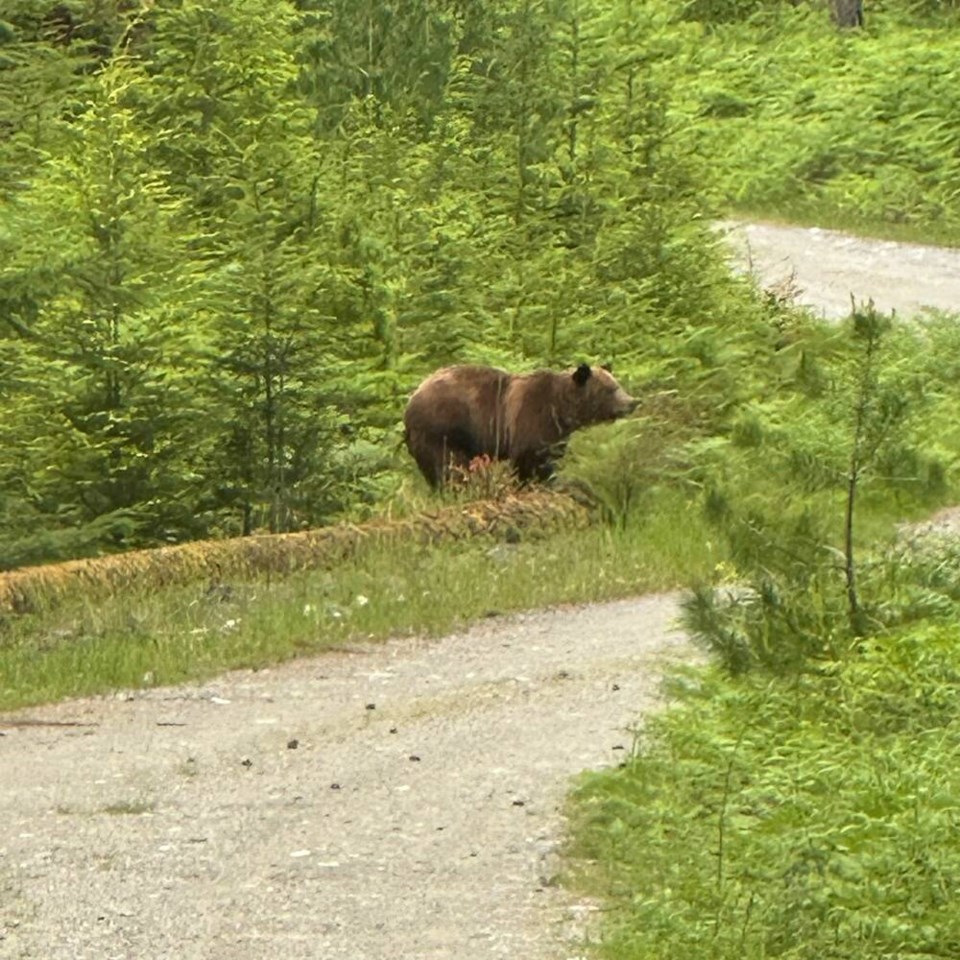The bear, which has been on the island for more than a month, was allegedly shot by a member of the public in the Van Anda area on Texada’s north end.

The grizzly bear that’s been wandering Texada Island for more than a month is believed to have been shot, says the B.C. Conservation Officer Service.
The service said it was responding to a report by the RCMP on Monday that the big bear known as Tex was allegedly “shot and possibly wounded” by a member of the public in the Van Anda area on the north end of the island.
Officers arrived on Texada on Monday and were continuing their investigation on Tuesday.
“At this time, the COS cannot confirm a bear was shot or wounded. The bear has not been located,” said a statement posted at about 8 a.m. Tuesday.
The four-year-old grizzly was first spotted on Texada on May 25 after swimming over from the Powell River area.
The grizzly had been reported as following some residents and stalking livestock since its arrival, but there have been no reports of any injuries to people or animals.
There have been concerns, however, that the animal will eventually come into serious conflict with humans or livestock on the 300-square-kilometre island, home to about 1,200 residents.
The province has remained firm in its stance that the grizzly is not a candidate for relocation after two previous attempts failed.
The bear was tagged and moved from Gibsons last fall, and was moved again from Sechelt.
It then showed up in Powell River, where it was getting into boats and stalking a couple on a picnic, who had to retreat to the water and remain there while the grizzly paced on shore for half an hour.
Three First Nations have asked the province for permission to move the grizzly into their territories.
John Powell, elected chief of Mamalilikulla First Nation, called the situation a “ticking time bomb” last month, saying it was inevitable the bear was going to run into a human or animal and “have a negative engagement.”
The Ministry of Land, Water and Resource Stewardship has said on average, relocation success rates are about 30% on the first attempt and generally decline on subsequent attempts.
“Bears that are aggressive toward people, considered dangerous to the public or are human-food conditioned are not candidates for relocation, due to the risk to public safety,” the ministry said.
“These are difficult decisions, but people’s safety is always the top priority. It is our hope that it will not come to this, and the bear will move on independently.”
Anyone with information on the alleged shooting of the bear on July 14 is asked to call theRAPPline at1-877-952-7277.
[email protected]